 7 citations,
January 1987 in “Archives of Dermatology”
7 citations,
January 1987 in “Archives of Dermatology” Most people using minoxidil for hair loss probably won't see significant improvement.
 6 citations,
January 2021 in “Journal of The American Academy of Dermatology”
6 citations,
January 2021 in “Journal of The American Academy of Dermatology” Low-dose oral minoxidil can be effective for hair loss but should be avoided in people with certain heart conditions and severe liver problems.
[object Object]  6 citations,
May 2020 in “Pharmacology Research & Perspectives”
6 citations,
May 2020 in “Pharmacology Research & Perspectives” A new gel form of minoxidil is equally effective for hair growth and safer for the heart and other organs than the traditional solution.
6 citations,
January 2019 in “Journal of lasers in medical sciences” Using a fractional CO2 laser helps Minoxidil work better for hair regrowth.
6 citations,
December 2017 in “PubMed” Minoxidil helps hair growth by promoting stem cell differentiation through increased ATP synthase activity.
 6 citations,
January 2017 in “Annals of Dermatology”
6 citations,
January 2017 in “Annals of Dermatology” Combination of 17α-estradiol and minoxidil improves hair growth and reduces hair loss in most patients.
6 citations,
June 2016 in “Journal of receptor and signal transduction research” Minoxidil increases calcium levels and kills prostate cancer cells independently of calcium.
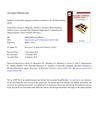 6 citations,
January 2016 in “Bioorganic & Medicinal Chemistry Letters”
6 citations,
January 2016 in “Bioorganic & Medicinal Chemistry Letters” Some minoxidil combinations can help differentiate leukemia cells without harming other cells.
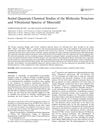 6 citations,
August 2014 in “Spectroscopy Letters”
6 citations,
August 2014 in “Spectroscopy Letters” The analysis shows where minoxidil's atoms are likely to react and describes its electronic transitions and behavior with temperature changes.
 6 citations,
October 2012 in “PubMed”
6 citations,
October 2012 in “PubMed” The combined treatment of 3% minoxidil and 0.1% finasteride is more effective in improving hair loss than 3% minoxidil alone, with similar side effects.
 6 citations,
September 2012 in “Aesthetic Plastic Surgery”
6 citations,
September 2012 in “Aesthetic Plastic Surgery” Minoxidil applied before and after surgery improves skin flap survival in rats.
6 citations,
October 2011 in “Archives de pédiatrie” Minoxidil ingestion can cause severe heart issues and requires careful medical monitoring.
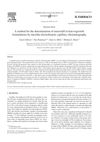 6 citations,
July 2005 in “Farmaco”
6 citations,
July 2005 in “Farmaco” A quick and simple method was created to identify minoxidil in hair-growth products using micellar electrokinetic capillary chromatography.
6 citations,
November 1993 in “European journal of clinical pharmacology” Minoxidil is processed in the body by an enzyme found in the liver and platelets.
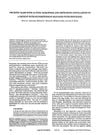 6 citations,
September 1988 in “Drug intelligence & clinical pharmacy”
6 citations,
September 1988 in “Drug intelligence & clinical pharmacy” Minoxidil caused a severe rash in a patient, which improved after stopping the drug.
6 citations,
April 2022 in “Journal of The American Academy of Dermatology” Low-dose oral minoxidil improved hair growth in most pediatric patients with mild side effects.
6 citations,
November 2020 in “Chinese Medical Journal” Combining minoxidil and fibroblast growth factor is more effective for treating male hair loss than using either alone.
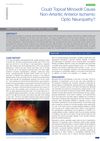 6 citations,
January 2016 in “Journal of Clinical and Diagnostic Research”
6 citations,
January 2016 in “Journal of Clinical and Diagnostic Research” Topical minoxidil might potentially cause vision problems, but more research is needed.
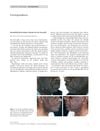 6 citations,
May 2012 in “Clinical and experimental dermatology”
6 citations,
May 2012 in “Clinical and experimental dermatology” Oral minoxidil can cause inflamed, ingrown hairs in the beard area.
5 citations,
May 2022 in “Clinical & Experimental Metastasis” Minoxidil and ranolazine together can reduce the spread of certain breast cancer cells.
5 citations,
April 2022 in “Pharmaceutics” Minoxidil nanoparticles significantly boost hair growth in mice compared to regular minoxidil.
 5 citations,
April 2021 in “Frontiers in Pharmacology”
5 citations,
April 2021 in “Frontiers in Pharmacology” Using minoxidil-coated microbubbles with ultrasound significantly boosts hair growth.
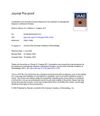 5 citations,
December 2020 in “Journal of The American Academy of Dermatology”
5 citations,
December 2020 in “Journal of The American Academy of Dermatology” Minoxidil and spironolactone improve hair density and reduce shedding in girls.
 5 citations,
October 2020 in “Lasers in Medical Science”
5 citations,
October 2020 in “Lasers in Medical Science” Combination therapy works best for female hair loss, increasing density and thickness.
[object Object]  5 citations,
March 2020 in “Journal of Cosmetic Dermatology”
5 citations,
March 2020 in “Journal of Cosmetic Dermatology” High concentration Minoxidil and Carboxygas effectively treated resistant hair loss with no side effects.
 5 citations,
January 2020 in “Skin Research and Technology”
5 citations,
January 2020 in “Skin Research and Technology” Minoxidil 5% works better than 2% for hair growth in male-patterned hair loss.
 5 citations,
April 2018 in “Journal of Cosmetic Dermatology”
5 citations,
April 2018 in “Journal of Cosmetic Dermatology” New 5% minoxidil formula safely and effectively treats male hair loss.
 5 citations,
January 2018 in “Javma-journal of The American Veterinary Medical Association”
5 citations,
January 2018 in “Javma-journal of The American Veterinary Medical Association” A dog fully recovered from minoxidil poisoning after receiving treatment.
5 citations,
January 2018 in “Italian journal of dermatology and venereology” Minoxidil effectively stimulates hair growth in androgenetic alopecia.
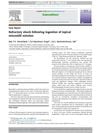 5 citations,
March 2016 in “Medical journal, Armed Forces India”
5 citations,
March 2016 in “Medical journal, Armed Forces India” A man experienced life-threatening shock after swallowing hair growth solution.




















